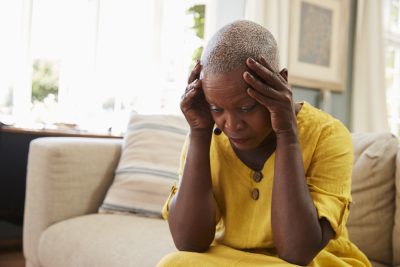In an era where dementia affects millions of families across diverse communities, Dr. Dona Murphey brings a unique perspective that bridges personal experience with professional expertise. As a Harvard-educated neurologist and founder of PrognosUs, Dr. Murphey has witnessed the impact of dementia not only through her clinical work but also as a caregiver to six family members affected by the condition. Her mission to address racialized health disparities in dementia care stems from firsthand experience with the challenges faced by immigrant families and communities of color. In this illuminating interview, Dr. Murphey shares crucial insights about early detection, risk factors, and the intersection of dementia with cultural, social, and economic factors.
[Editor’s note: This is a truncated transcribe of a longer video interview. Please see the video for the extended version. Some errors may occur.]
What motivated you to make a difference in the health outcomes for communities affected by dementia?
I think it starts from a very personal place. I have had many people in my own family affected by dementia and have seen the ways in which we have struggled to get access to the appropriate counsel, care, community support. As immigrants who do not have English language preference often, we struggle with all of those things. And I see that same struggle manifest in other ways and in other communities. So, for dementia in particular, we have double the incidence in African American families, and we have 1.5 the incidence in Latino families. Latino families also often, like Asian American families, are struggling with the language access issues. And also, I think in both communities, we have problems sometimes with immigration status issues. So, there are lots of intersecting things, challenges, barriers to the appropriate care, as I mentioned, and information that we could be empowered with. And the support that we really all require as caregivers who are on a really long and difficult journey with this disease.
What are the immediate signs of dementia or Alzheimer’s that many of us in the culture need to understand aren’t just old age?
I want to be a little bit nuanced here. First, I think I have to help people understand that Alzheimer’s is a kind of dementia, just like there are many kinds of cancer. Alzheimer’s happens to be the most common kind. For Alzheimer’s dementia, one of the primary features of that dementia early on in the disease is that people have some difficulty with short-term memory. What might that look like? It might be forgetting words. It might be misplacing items. It might be forgetting appointments. But these things have to be severe enough that they are interfering with your function, whether that is professional function, social function. I forget my keys once in a while, where they are. I misplace items. I forget words. I clearly do not have dementia. So, I think it’s important to know like it’s kind of degrees. It’s a spectrum. And once you reach that level to where it is substantially impairing your ability to function, that’s where you need to be a little bit more concerned.
Some of the other symptoms that we might see early on in dementia are some anxiety, some withdrawal socially. Some of that might be because people have actually an awareness of what is happening to them, and they are ashamed. There is a lot of stigma culturally across our cultures. And so, they might not want to be noticed as being different. That’s something that we need to collectively change, I think, because this is a disease of the brain. There is no shame about it. We need to identify it early so that we can intervene. And there are things we can do to slow down the progression of this disease.
How important is it to get diagnosed by a physician early, and what are the benefits versus waiting?
I will say first, it is important to have a formal diagnosis because it allows you to qualify for certain kinds of assistance. And most importantly, I think as of July of this year, there’s something through traditional Medicare, you don’t actually qualify for this if you’re on Medicare Advantage. It’s called the guide model for people who are caring for loved ones with dementia, and it actually helps both the patient with the disease as well as their caregiver. Providing diagnosis therapies and that can include drug therapies to slow down the progression of the disease because as I mentioned, there is no therapy to reverse it or to stop the progression, but to slow it down can be very important to provide ancillary support like physical therapy, speech therapy.
The other reasons to know early, this I guess doesn’t require a formal diagnosis, but it’s also still better to have one. It’s really helpful in planning, so financial legal and financial matters when you have a pretty good idea that this is the disease that we’re dealing with in our family, then you can be right on like making plans for a durable power of attorney to transfer decision-making authority to someone that you trust, right? For real estate, for finances, for medical decision-making.
Can you explain how diabetes and brain health are interconnected, and how does movement and exercise play a role in that kind of trilogy of sitting down and smoking and hurting your brain?
Diabetes, it’s basically a dysregulation of sugar in the body. This sugar can be super damaging for the brain. And the anecdote that I always like to provide to people, because I think it’s pretty striking. When we were in neurology residency, we had to do spinal taps, not just on adults but on babies. When babies have fevers before six weeks of age, you have to spinal tap every one of them because it’s possible that they have a brain infection. These babies, whereas in adults, we actually have to give them sometimes an oral sedative. We have to prep the back with all kinds of local anesthetic. Babies, we do none of that. We give them a syringe of concentrated sugar water, and they are just drugged up.
Exercise is wonderful for, like, if you can lower your weight and constantly be physically active, right? And we usually say about 50 minutes a day, if you can do that, and it doesn’t have to be running a marathon. It can be 50 minutes of just, like, vigorous walking, if you can. That is really great for your brain health. Exercise is the only thing on that list of 14 things that grows new brain cells.
How can individuals watching right now be active in creating new brain cells and training their brain to extend its health?
The pandemic really showed us what the impact of social activity is, not just on older people, on younger people too. In fact, we are intrinsically social animals. And it is actually really bad for our physical, emotional, mental health to not be socially engaged. And I mean like meaningful social engagement, not just being in a room with people around you, but actually socially engaging with all of those people. It’s actually one of the most challenging things you can do cognitively. If you think about solving some math problem versus talking to your best friend about their relationship issues, right? Which is the more difficult problem to solve? And it’s the relational things, the social things that are often much more difficult to navigate.
Reading is really helpful as well. Education in general could be also listening to and watching videos. Reading allows you to imagine kind of that social engagement, particularly fiction, to put yourself in other people’s shoes and to imagine like the story that’s evolving as you’re reading it. Education increases what we call cognitive reserve, which means that if you can’t figure the answer to a question or how to solve a problem in one way, if you are educated, right, you probably have a lot of different ways you can look at that problem and think about that problem. And you can find the answer a different way.
If you feel subjectively my ability to think clearly, my ability to find words, my ability to plan, those things are becoming more difficult for me, worse and worse with time. Your subjective experience is likely going to be right. So go get evaluated. Trust your gut on those things. And at the very least, you can start being monitored.













